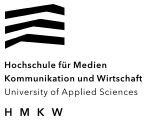Study
Our aim is to research and analyze behaviors of human laughter through ambulant in vivo assessment. We try to focus on psychodynamic dimensions of laughter by assessing the felt emotions of participants while laughing and cognitive reasons behind their doing. According to different literature, one hypothesis is to distinguish real and fake-laughter by means of felt emotions: Fake-laughter is connected with negative emotions (sadness, anger, disgust); real laughter is connected with positive emotions (happiness, surprise). Also in advance of a clinical approach we will try to explore the reasons behind laughter for their possible illustration of psychodynamic constructs of mental structure and sanity.


